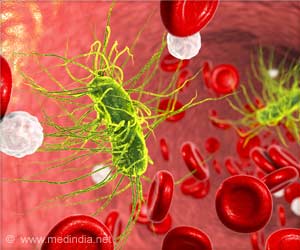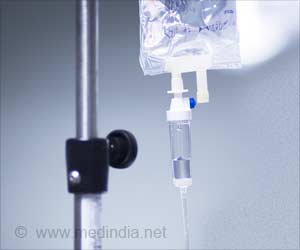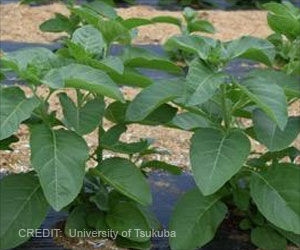Heparan sulfate sugar enters the brain during septic shock and causes memory loss and cognitive dysfunction, finds a new study.

‘The cause of cognitive damage in septic shock gives a clear target for drug development and further study into memory loss.’
Read More..




"This sugar is getting into the hippocampus, and it shouldn't be in there," said Robert Linhardt, professor of biocatalysis and metabolic engineering at Rensselaer Polytechnic Institute, and lead author of the study. Read More..
"We actually think this is rewiring memory in the hippocampus, and it's causing memory loss. Neural circuits are being disrupted or broken or connected in the wrong way."
The study is the latest outcome of a six-year partnership between Linhardt and Dr. Eric Schmidt, an expert on sepsis and assistant professor in the Department of Medicine at University of Colorado Denver.
Sepsis is a systemic infection of the body. One-third of patients admitted to hospitals with sepsis go into septic shock. Of those, half will die. In a 2016 study published in the鼦merican Journal of Respiratory and Critical Care Medicine, a team that included Schmidt and Linhardt developed a simple but accurate test for determining whether patients in septic shock would recover or die.
The test uses a urine sample to check concentrations of a type of sugar - glycosaminoglycans - that ordinarily coat cells lining blood vessels and other surfaces inside the body. In septic shock, the body sheds fragments of these sugars, and the team found that higher concentrations portend death. The test is used in clinical settings, and the insight has helped doctors search for more effective therapies.
Advertisement
Evidence indicated that the heparan sulfate might be binding with brain-derived neurotrophic factor (BDNF), which is critical to long-term hippocampal potentiation, a process responsible for spatial memory formation. The researchers also found that presence of enriched heparan sulfate in the blood plasma of septic patients upon admission to an intensive care unit predicted cognitive impairment detected 14 days after discharge.
Advertisement
Then they put their hypothesis to the test. In healthy mice, 100 percent of the tagged heparan sulfated was excreted through the urine within 20 minutes, and none ever entered the brain. But in septic mice, researchers found a small amount of tagged heparan sulfate in the hippocampus region of the brain.
"Now that we know the cause of cognitive damage in septic shock, it gives us a clear target for drug therapy: something that binds to the sugar and clears it, or an enzyme that converts it to something that won't impair cognitive function," Linhardt said. "This is an important advance, and we're excited about the story that's unfolding."
Source-Eurekalert















